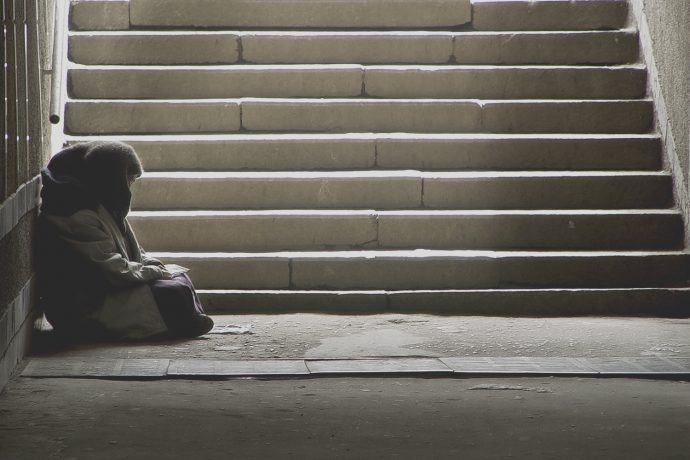When we set out to plant a church in San Diego’s East Village, a downtown neighborhood where there are around a thousand people living on the streets at any given time, I expected it to be a difficult journey. I was prepared for painful stories, struggling people, addiction, mental health problems, and a need greater than we would be able to meet. I had been working with this population for a long time, and I had a good sense of who populated the sidewalks of San Diego. But in those years of outreach to people living on the streets, I had missed what is perhaps the core element of life without shelter—vulnerability.
Shortly after we held our first service, the news broke that someone was assaulting and murdering people sleeping on the streets of San Diego, sometimes setting them on fire. Three people were killed and several others seriously injured in these attacks. As our congregants lifted the situation in prayer, I could sense the anxiety of the people among us who were themselves living on those same streets. Sleeping out in the open on a sidewalk or in a park, how could anybody rest well, knowing that someone might come along with a knife or a hammer or a can of gasoline and attack them in their sleep? It’s difficult to imagine being so vulnerable.
The sad reality is that these folks are vulnerable to much more than just serial killers. Virtually every unsheltered member of our community has had all of their belongings (money, ID, medication, etc.) stolen multiple times since we started meeting in the summer of 2016. In that short time, one congregant has twice been hit by a car, two others were run over by a car that swerved into their tent on the sidewalk, some have dealt with bed bugs or other parasites, several have been severely beaten, and almost all of them have been ticketed and threatened with arrest. There are threats to their safety from every direction. People who live on the streets exist in a constant state of vulnerability.
But safe is not a word that describes the life of any positive character in the New Testament. Jesus and the early disciples regularly stepped into vulnerability and found the provision of God there.
This got me thinking about my own vulnerability (or lack thereof). I have walls around me when I sleep, and a big dog. I usually know where my next meal is coming from, and although I live in a tough neighborhood, I don’t worry too much about being robbed or beaten. As a white man with shelter, the police don’t seem threatening to me. I have health insurance and car insurance homeowner’s insurance and probably some other insurances that I don’t think of often. My life is safe.
But safe is not a word that describes the life of any positive character in the New Testament. Jesus and the early disciples regularly stepped into vulnerability and found the provision of God there. Those living safe lives heard harsh words and even threats of condemnation from Jesus.
It seems that invulnerability may actually be a barrier to true discipleship. But how do you step into vulnerability when everything in the world has trained you to step into safety? How do you put yourself and your family at risk when virtually everyone in your life has taught and advised you to do the opposite?
This is part 1 of a series on vulnerability.





0 Comments